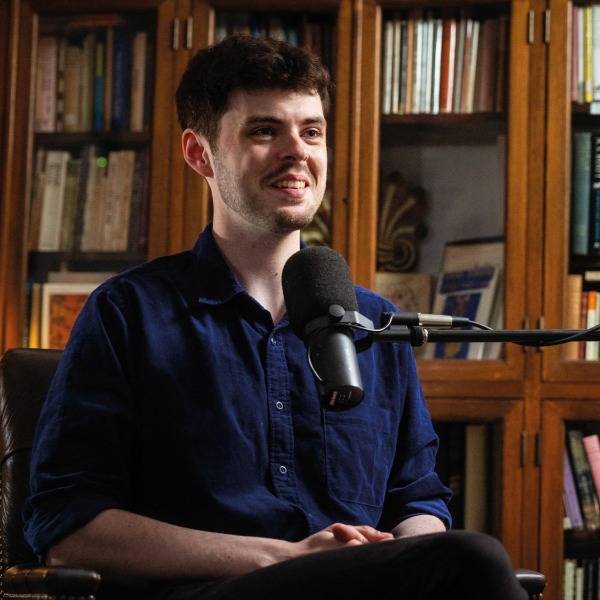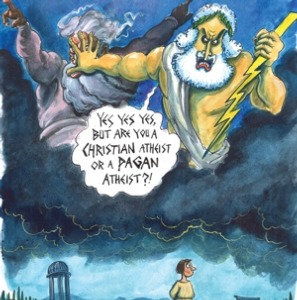
The best thing about this job is the opportunity it affords to meet, commission, edit and publish writing from brilliant writers. It sounds obvious, but if you love words and ideas as much as I do, you really can’t overestimate the thrill of publishing Philip Pullman on why he loves libraries, or Jonathan Rée on why William James really matters, or Eliza Griswold reporting from the frontline of religious conflict in Nigeria, or Martin Rowson defending political correctness, Paul Davies on the likelihood of contact with aliens or Raymond Tallis on bad science or AC Grayling on bad religion or Ralph Steadman on anything. The great thing about humanism – at least in my working definition – is that in principle it includes anything humans do or think. This has meant that I could indulge my jackdaw sensibility (and accommodate my short attention span) by flitting from neuroscience to art history, hate speech to hedgehogs, enlightenment philosophy to unenlightened scatology, satire to Soviet architecture, photography to the science of faeces – and even, now and then, slip in the odd piece on hip hop or jazz just, you know, to keep it real.
A particular (I hope not too perverse) pleasure came with the opportunity to publish pieces that I knew would annoy my fellow humanists – Mary Midgley on why humanism is pointless, say, or Francis Spufford on why atheists are just like Christians, or novelist Marilynne Robinson on the poverty of atheism, or Jay Lakhani from the Hindu Council on where Hindu theology intersects with quantum physics (sorry, Jay, but it really doesn’t). Many of these pieces led to bulging letters sack and some really good online debate. Sometimes, I’ve learned, it’s better to have your readers outraged and complaining than not saying anything at all.
It would require more work than I can be bothered to do for me to list all the wonderful thinkers and writers I’ve had the chance to work with, but I do want to give special mention to the younger and (for now) less well-known writers I have worked with – many of whom I am sure will be household names in the future. Sarah Ditum, James Gray, Angela Saini, Paul Sims, Rory Fenton, Dale deBacksy, Nina Power, JP O’Malley, Alom Shaha, Owen Hatherley, Matthew Adams, Myra Zepf, Philip Womack, Andrew Mueller, Vicky Simister: the evidence is that there is a really talented group of up-and-coming secular writers out there and the fact that New Humanist has been able to publish them and, crucially, pay them for their work (however meagrely) is another source of pride for me.
The biggest surprise I had during my tenure was that, despite our at times trenchant, and always irreverent, attitude to religion, the loudest denunciation for being offensive came in response to the cover from 2007 that lightly satirised Richard Dawkins. My most embarrassing moment was when I praised a film offering a “brave, original” perspective on AIDS on the Guardian science podcast, before it was pointed out to me (by a pretty scornful Ben Goldacre) that it was shoddy AIDS-denialist propaganda. I did my penance by commissioning Seth Kalichman’s brilliant piece “How To Spot an Aids Denialist”, but still, it stung and I learned a valuable lesson. And my proudest moment? If you read our Q&A from my final issue, with the wildly successful fantasy author Derek Landy, you’ll see that the questions were devised by Saul Melville, my 11-year-old son. I think Saul did a great job getting to the heart of Landy’s work and personality, but you may not agree. I don’t care. What are you gonna do, fire me?
Right, that’s enough about me, what about the future? You can get a glimpse of things to come as my successor as editor, Daniel Trilling, writes about the Dawkins race row. Daniel spent seven years learning his trade at a little magazine called the New Statesman and has written a highly acclaimed book about the rise of the far right. I feel sure this magazine and what I am far too modest to call my “legacy” are very safe in his hands. He’s a real talent. And you’ll like him. I’ll miss this job and my colleagues an awful lot. And, dear reader, I’ll miss you too. Thanks. It’s been a blast.

